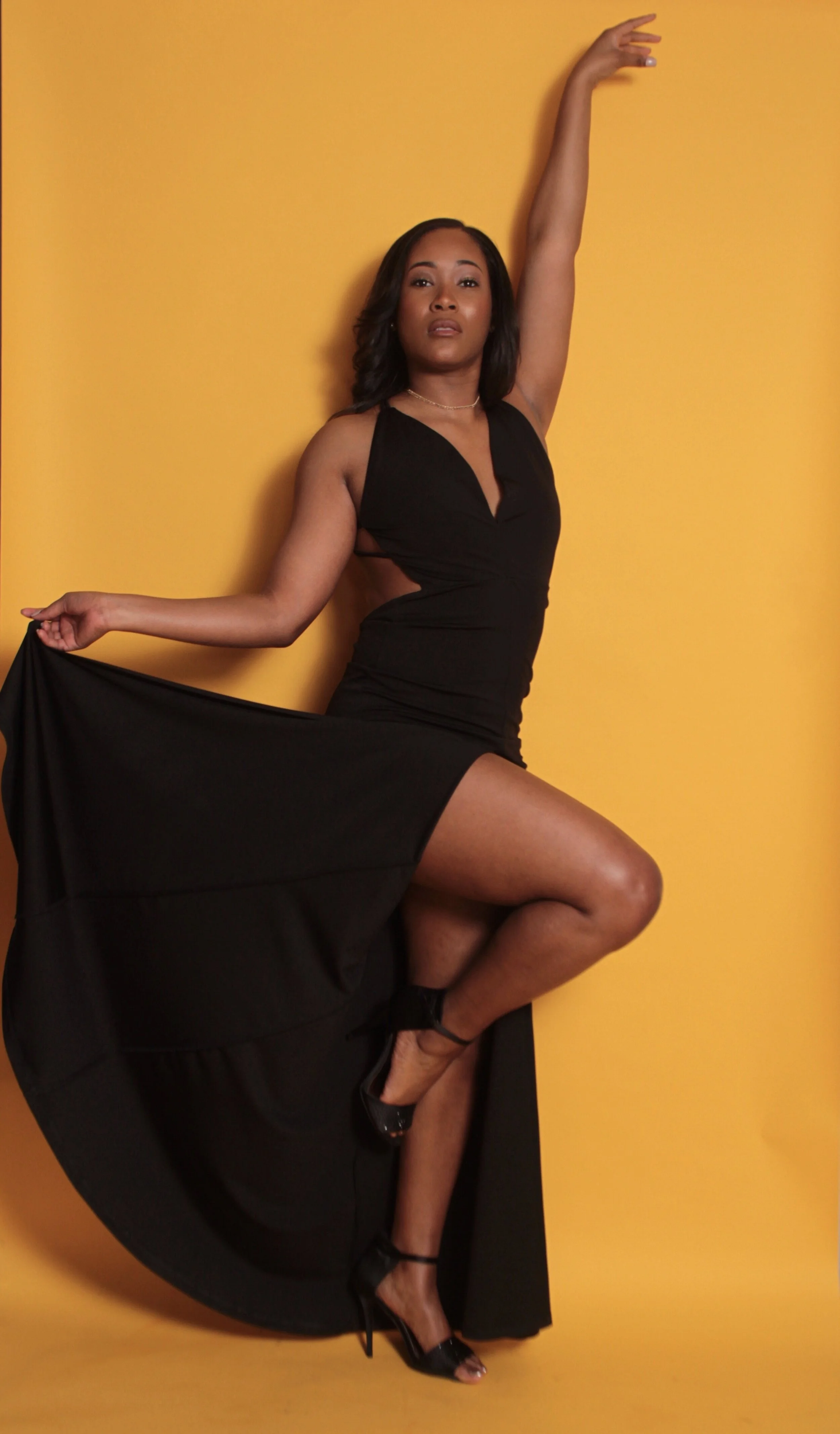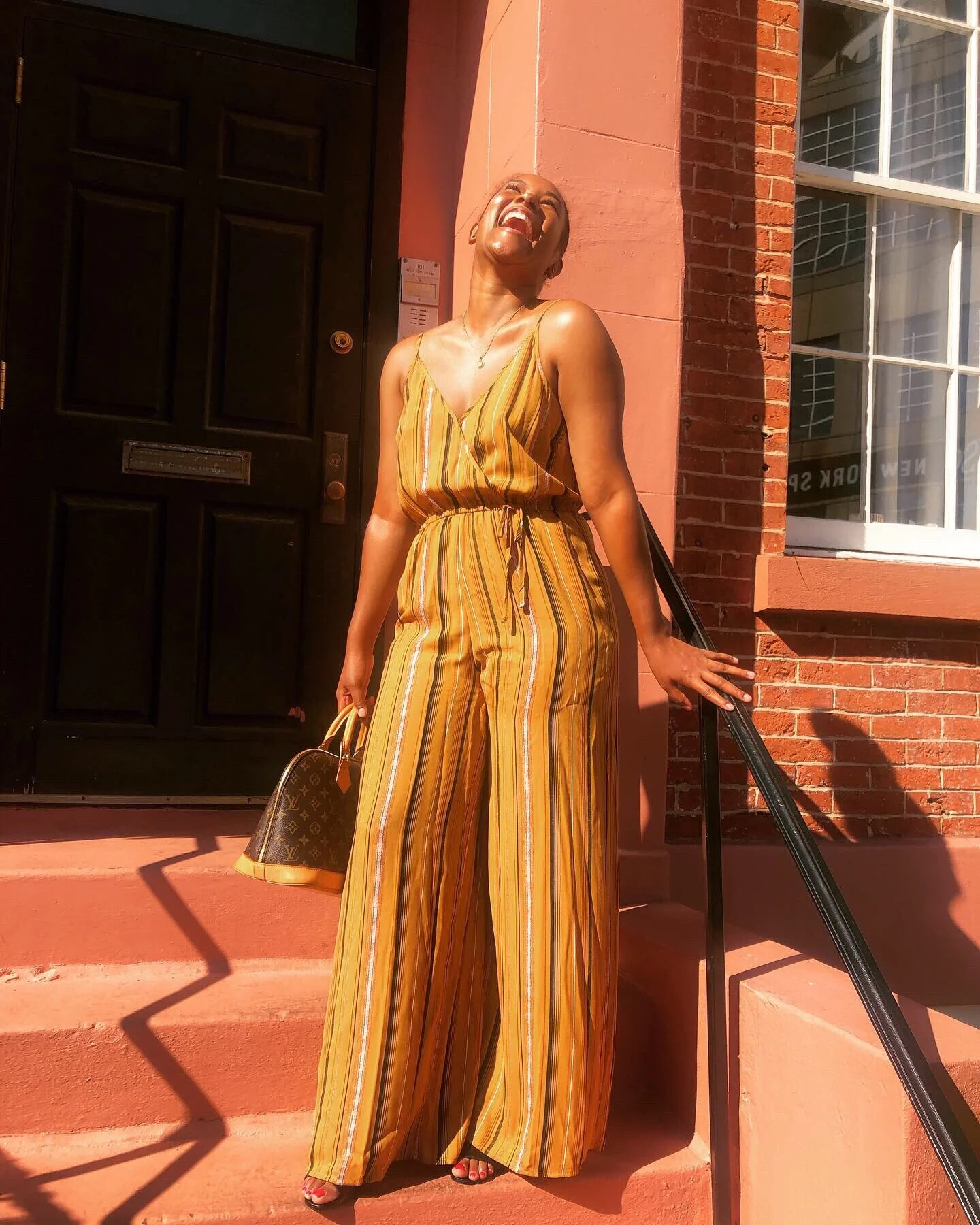Sherrell Whitmire, Youth Development Program Director & Professional Dancer
Hey, Sherrell! How would you describe what you do?
I sometimes say that I am a dancing social worker. I am a trained dancer, but currently I work with youth as Program Director of the first NYPD [New York Police Department] community center, located in the East New York/Brownsville neighborhood in Brooklyn. It’s the first initiative of its kind, focused on facilitating programs and relationship-building between the NYPD and young people. We offer programming for 12-19 year olds in the community that will expose them to different kinds of career pathways through extracurricular opportunities such as internships, a youth council, dance, an aviation program, and so many other things our youth may not otherwise be able to engage in.
How do you think this community center will be useful for young people?
The community center will be useful to young people because it will provide resources that have not been offered continuously in the community. In addition to resources, I think it’s important to encourage civic engagement, and to provide a safe space for young people to process their surroundings. What do you see happening in your community? What do you like, and what do you not like? East New York is slowly being gentrified, so how do you maintain the essence of the community while others are coming in. My hope is that our programming will allow young people to step into this conversation, as well promote youth engagement and exposure to various internships that will allow them to gain skills and possible career interest in the programs being taught.
You alluded to it a bit earlier, but how did you transition from being a dancer to a social worker?
I got a full scholarship to college for dance, and since people kept telling me that you can’t make a living off of dance, I did a double major in dance and social work. After college, I moved to New York City because I wanted to say that by 30 years old, I had gone after my dreams. I have been lucky enough to work with a professional dance company, do various gigs, be an NFL cheerleader. I did my first tour, traveled all over the United States, and returned to New York City because I felt that I needed a more sustainable career path. This is where social work came in. While working at an afterschool program as a teaching artist, I began to see how dance can improve so many other things in the lives of young people. I then went to graduate school to obtain a master’s in social work in order to play a larger role in how those kinds of programs serve young people.
What were some of the critical career steps you’ve experienced leading up to where you’re at today?
While in graduate school, I interned at the Brownsville Community Justice Center working with the young women’s collective. The young ladies were between ages 19 to 24 years old, and we explored community issues that felt meaningful, and organized activities and programs to process those issues. Through various community issues we explored sexual abuse through meditative yoga practice, or psychodrama.
When I graduated with my MSW, I was asked to work with incarcerated youth placed in alternative programming instead of being sent to Rikers. I would support the young people through their court appearances, talk with the district attorney on their behalf to speak to their character and progress in our programming. Then I was promoted to a role where I was able to think through structuring a workforce development program, and to build a program focusing on social enterprise for young people who have graduated and don’t want to go to college. So the social enterprise track would allow those young people explore how they might grow a DJ business, or launch a t-shirt line -- to become actual entrepreneurs.
I also had the opportunity to get into placemaking , where we had young people contribute to transforming spaces in their communities where harm has or is currently being done. For example, these might be places where gang violence frequently occurs, or where sexual violence has occurred, or consistent drug use takes place. We explored how to transform those spaces through murals, and let young people take the lead on how that occurs.
So you’ve really integrated social work and the arts. How do you draw that connection when explaining your work to others?
In most people’s minds the two are unrelated, but to me, the arts and social work are interconnected. Taking dance as an example, movement is therapy. Dance can allow young people to zero in on why they’re having a challenging moment. One day, I would actually like to create my own nonprofit that focuses specifically on arts programming.
That’s awesome! Tell me more about this nonprofit you’re envisioning.
I envision it as a creative hub space that provides free services for youth that have a strong interest in being creative -- through movement, theatre, or singing. It would be an outlet for exploration, because despite what people will tell them, these interests can be actual career paths. So having a space to be able to help bring out the gifts and talents of some of our young people is really my dream. Especially considering how the arts are being defunded in our public schools. The arts can teach discipline, and build character -- it’s so important.
I’d also love to travel and do a workshop series where I travel around the country. Growing up in Columbus, Ohio I never had the opportunity to leave until I was 23 years old and moved to New York. It’s crazy because when you’re from a small place, you can be the best or the top ten dancers in that town. But when you get to New York City, you realize how much more there is to do in the dance world, or in the arts as a whole. It would have been great for me to be more exposed when I was younger, so I would want my nonprofit to enable me to bring that kind of knowledge back to my hometown and places like it. If I’d had that help, it would have been wonderful. I love giving back information and resources. My mom did so much for me, but she didn’t know to send me away for the summer to train, or to explore this or that program. There are so many great dancers in places that just need more resources so those young people can really build their craft.
What is your professional support system like?
I’m still seeking a mentor. I do feel that I’m just kind of out here doing this on my own. I think about that every day. My role in East New York/Brownsville has allowed me to stretch my everyday nine-to-five skills, and has rooted me in community engagement with different stakeholders. I’m more integrated into the logistical side of things. I feel that my last job prepared me for this current role because I was doing logic models, program models, youth recruitment. And, before that, my internship experiences rooted me in learning. But I would love to have a mentor to help inform my decision-making, or to help me figure out what direction to take in my career -- what is even out there for me to consider as a next step or in setting up my nonprofit.
Who inspires you?
My mom. She is a social worker. She helped me think through the type of work I want to engage with in this field. She started in youth development but now she does mental health. I remember her working with young people, and I can see how I really followed in her footsteps. She helped me land on a path. She would say “Do you want to work with adults? Drug and alcohol abuse issues? Do you want to work with kids?” So she helped me determine a pathway and to identify how my talents can be applied.
Final question! What are you excited about for your future?
I would like to create a framework that can be used nationwide or citywide for engaging youth in productive conversations related to their experiences with police. There is such a negative narrative around police engagement efforts and around our young people that has come from the increased coverage of police brutality and harassment. Those narratives are informed by real historic, systemic issues. I hope to find a way to address them head on through conversations between young people and police, to position young people as experts who possess critical information that police departments can really learn from. I am a firm believer that if we make the space for them to do so, youth will step in and lend their knowledge and experiences to the conversation. They’re the future of these communities. I’m excited when I think about how this will affect communities ten years from now, and hopefully be able to say we -- young people, police, politicians, everyone -- made real change in East New York/Brownsville by working together.
Please share this post with a friend, and follow us at @BlackWomenWorkIG!


